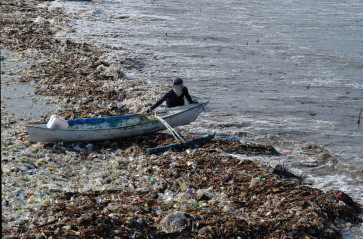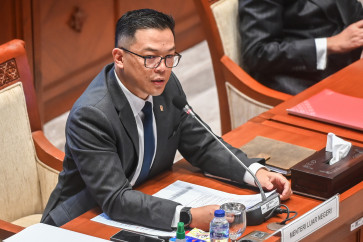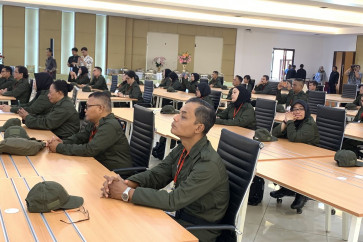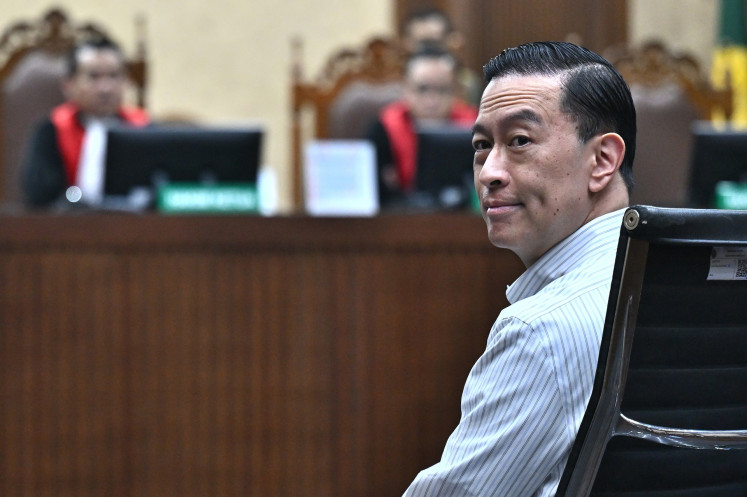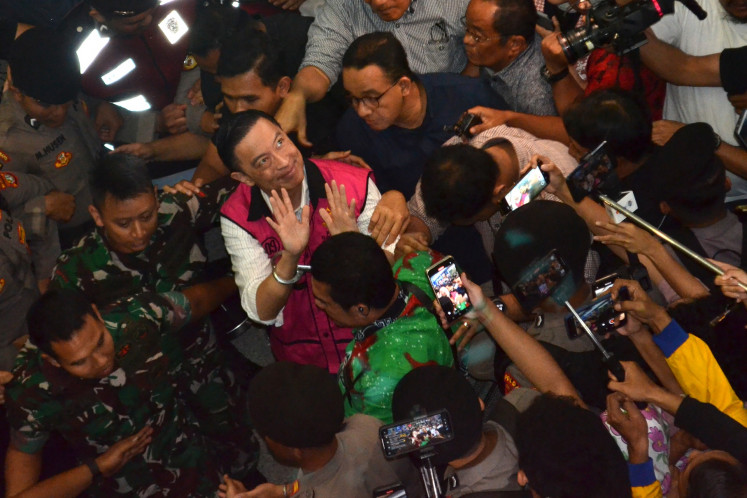Popular Reads
Top Results
Can't find what you're looking for?
View all search resultsPopular Reads
Top Results
Can't find what you're looking for?
View all search resultsResidents criticize Anies’ ‘Consultant Action Plan’
Kampung residents have criticized the Jakarta administration’s Community Action Plan (CAP), a supposedly collaborative program between the city administration and residents, for a lack of communication between its hired consulting firms and residents
Change text size
Gift Premium Articles
to Anyone
K
ampung residents have criticized the Jakarta administration’s Community Action Plan (CAP), a supposedly collaborative program between the city administration and residents, for a lack of communication between its hired consulting firms and residents.
On Jan. 14, 2018, Jakarta Governor Anies Baswedan issued Gubernatorial Decree No. 878 on village management that earmarked 21 of the city’s kampungs for renewal by the administration using the regional budget.
Supervised by the Jakarta Housing and Settlement Agency, 10 consulting firms are involved in the program. The city administration has set aside a budget of Rp 10 billion (US$717.5) for the program.
The consulting companies include PT Hardja Moekti Consultant, which won tenders in seven kampungs; PT Innerindo Dinamika, which won in three kampungs; and PT Jakarta Konsultindo and PT Angelia Oerip Mandiri, which won in two kampungs apiece.
The rest only won tenders in one kampung, namely PT Madani Multi Kreasi, PT Aditya Ridho Gumilang, PT Nusantara Citra Konsultan, PT Artha Demo Engineering Consultant, PT Mulia Cipta Konsultindo and PT Gugusan Gunung Perkasa.
Representing all of the kampungs in the program, Siti Maemunah, a resident and member of the Kampung Tongkol working team said that interaction between the consultants and residents was not adequate. In addition to the infrequency of meetings, consultants are said to have visited kampungs without prior announcement and have even canceled meetings at the last minute.
“We need more quality meetings with the consultants, because for some of us the consultants have only come several times, such as in Kampung Kali Apuran,” Siti said during a discussion at City Hall, Central Jakarta, on Friday.
In September, residents of Bukit Duri in South Jakarta, who won a class action suit against their eviction in 2016, also expressed disappointment over a lack of progress in the city administration’s promise to build a kampung susun (low-cost co-housing) and temporary shelters for the 93 Bukit Duri residents.
For Bukit Duri, the city administration used the consulting firm Jakarta Konsultindo, which won a tender worth Rp 438 million (US$311,404.6).
“The program is mere beautification, there has been no real preparations made for building the kampung susun. We are not involved or acknowledged,” said Sandyawan Sumardi, head of Ciliwung Merdeka, an organization that advocates for the rights of residents.
Housing expert from the University of Indonesia’s department of architecture, Joko Adianto, questioned the CAP program, as it was similar to the National Development Planning Conference (Musrenbangnas).
The Musrenbangnas is a development planning process, which involves discussions on topics ranging from community units (RW) to the regional level.
“CAP and Musrenbangnas are similar and people often cannot differentiate them. Therefore, I think the solution is to involve the consultants to oversee the Musrenbangnas, to make sure the resident’s demands are facilitated,” Joko said.
“This can be done, so CAP will be implemented as a community action plan, not a consultant action plan,” he added.
Anies said that to accommodate residents’ needs within CAP, the city administration planned to give money directly to the residents to improve their kampungs using the regional budget.
He cited Article 18 of Presidential Regulation No.16/2018 concerning the procurement of government goods and services that stipulated four types of self-managed regional budget scheme. One of them is self-management procurement that could be carried out by community groups.
“The government is allowed to fund or hand over the development fund to the public with a clear performance measure. This is not a grant, it is actually the same as the usual way of making a project, but without a tender,” Anies said.
For example, he said, if the residents wanted to build a 200-meter alley, the city administration would allocate the money and the construction process would be handed over to the community itself through its identified organizations, such as neighborhood units (RT) and RW, youth organization Karang Taruna or the Family Welfare Movement, and would be supervised by a relevant regional work unit.
“The goal is to foster a sense of belonging,” he said. “This is indeed a new approach. So far, only Jakarta will do it,” he added.(ggq)


